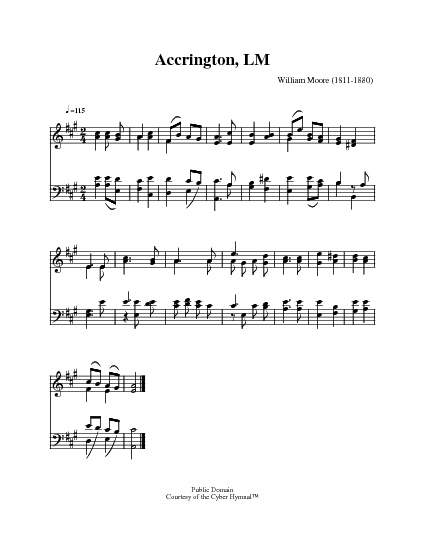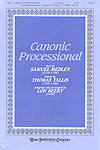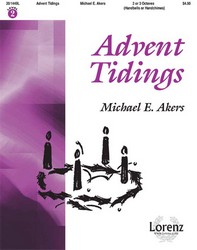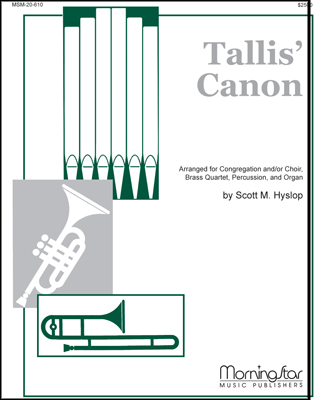- |
User Links
The Divine Nature, Providence, and Grace

Praise ye the Lord; 'tis good to raise
Author: Isaac WattsPublished in 218 hymnals
Printable scores: PDF, MusicXML (Compressed)Audio files: MIDI
Representative Text
We praise you, Lord; it’s good to raise
our hearts and voices in your praise;
your nature and your works invite
us make this duty our delight!
You formed the stars, those heavenly flames;
you count their numbers, call their names;
your wisdom’s vast! It knows no bound,
a deep where all great thoughts are found.
Lord, you are great, and great your might,
and all your glories infinite!
You crown the meek, reward the just,
and take great pleasure in their trust.
The saints are lovely in your sight;
you view your children with delight!
You know their hopes, you calm their fear;
you see and love your image there.
Source: In Melody and Songs: hymns from the Psalm versions of Isaac Watts #103
Author: Isaac Watts
 Isaac Watts was the son of a schoolmaster, and was born in Southampton, July 17, 1674. He is said to have shown remarkable precocity in childhood, beginning the study of Latin, in his fourth year, and writing respectable verses at the age of seven. At the age of sixteen, he went to London to study in the Academy of the Rev. Thomas Rowe, an Independent minister. In 1698, he became assistant minister of the Independent Church, Berry St., London. In 1702, he became pastor. In 1712, he accepted an invitation to visit Sir Thomas Abney, at his residence of Abney Park, and at Sir Thomas' pressing request, made it his home for the remainder of his life. It was a residence most favourable for his health, and for the prosecution of his literary… Go to person page >
Isaac Watts was the son of a schoolmaster, and was born in Southampton, July 17, 1674. He is said to have shown remarkable precocity in childhood, beginning the study of Latin, in his fourth year, and writing respectable verses at the age of seven. At the age of sixteen, he went to London to study in the Academy of the Rev. Thomas Rowe, an Independent minister. In 1698, he became assistant minister of the Independent Church, Berry St., London. In 1702, he became pastor. In 1712, he accepted an invitation to visit Sir Thomas Abney, at his residence of Abney Park, and at Sir Thomas' pressing request, made it his home for the remainder of his life. It was a residence most favourable for his health, and for the prosecution of his literary… Go to person page >Text Information
| First Line: | Praise ye the Lord; 'tis good to raise |
| Title: | The Divine Nature, Providence, and Grace |
| Author: | Isaac Watts |
| Meter: | 8.8.8.8 |
| Language: | English |
| Copyright: | Public Domain |
Notes
Praise ye the Lord; 'tis good to raise. J. Watts. [Ps. cxlvii.] First published in his Psalms of David, &c, 1719, p. 385, in 8 stanzas of 4 lines, and entitled "The Divine Nature, Providence, and Grace." It was included by J. Wesley in the first edition of his Psalms & Hymns, published in Charlestown, 1736-37, p. 10, with slight variations, the omission of st. ii., and the addition of Ken's doxology, "Praise God," &c. Further alterations were made by Wesley on adapting it for the Wesleyan Hymn Book, 1780, No. 216, and these latter readings are still retained in all collections of the Methodist bodies. The hymn in its original and altered forms is in extensive use. Original text in Watts's Psalms, late editions; Wesley's first reading in the reprint of 1736-37 Collection, London, 1882 ; and Wesley's final reading in the Wesleyan Hymn Book, 1875.
--John Julian, Dictionary of Hymnology (1907)
Timeline
Arrangements
Piano/OrganMore Piano/Organ... |  |
ChoralMore Choral... |  |
HandbellsMore Handbells... |  |
Media
Urania: or a choice collection of psalm-tunes, anthems, and hymns, from the most approv'd authors, with some entirely new; in two, three, and four parts... #174
- MusicXML (MXL)
- MIDI file from The Cyber Hymnal #5710
- MIDI file from Rodeheaver's Gospel Songs for church, Sunday Schools and evangelistic services #163
- MIDI file from Urania: or a choice collection of psalm-tunes, anthems, and hymns, from the most approv'd authors, with some entirely new; in two, three, and four parts... #174


 My Starred Hymns
My Starred Hymns



